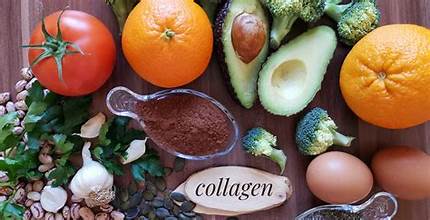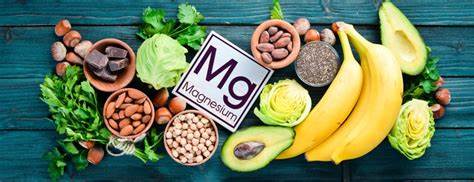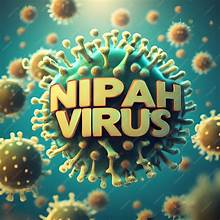What is Collagen?
Collagen is a vital protein that supports healthy joints and maintains the skin’s elasticity and firmness. It is found throughout the body in the bones, muscles, blood, and skin making up about three-quarters of the skin’s structure and nearly one-third of the body’s total protein content.
Your body naturally produces collagen by combining amino acids, the essential building blocks of protein, with key nutrients such as vitamin C, zinc, and copper. This process relies on certain nutrients found in food, including:
- Proline: present in egg whites, dairy products, cabbage, mushrooms, and asparagus
- Glycine: found in foods like chicken skin, pork skin, gelatin, and other protein-rich sources
- Vitamin C: abundant in citrus fruits, berries, and bell peppers
- Zinc: available in beef, lamb, pork, shellfish, lentils, chickpeas, beans, dairy, nuts, and seeds
- Copper: found in organ meats, cocoa powder, cashews, sesame seeds, and lentils
As you grow older, collagen levels naturally decline, and the body’s ability to produce new collagen slows down. To help support collagen production, many people use supplements such as collagen powders, capsules, gummies, or liquid formulas.
Importance of Collagen in the Human Body:
Collagen plays a fundamental role in maintaining the structure, strength, and flexibility of various tissues throughout the body. It acts as the main structural protein in muscles, bones, skin, cartilage, ligaments, and tendons, while also supporting the integrity of organs, blood vessels, and connective tissues.
Essentially, collagen functions like the body’s natural “glue,” forming a complex network or framework that holds tissues together. Depending on how much mineralization occurs within this framework, collagen can make tissues either firm, as in bones, or more elastic, as in skin and blood vessels.
Some of the key functions of collagen include:
- Supporting structure and elasticity: It provides firmness and stretch to the skin, strength to tendons and ligaments, and resilience to cartilage and muscles.
- Protecting internal organs: Collagen helps form a durable, flexible lining around organs, reducing the risk of damage or tearing.
- Maintaining heart health: It strengthens the heart muscle and blood vessels, ensuring they remain elastic and functional.
- Promoting tissue regeneration: Collagen assists in the continuous renewal of skin, cartilage, ligaments, and tendons, replacing old or damaged cells with new ones.
- Reinforcing bones: It contributes to bone remodeling the ongoing process that keeps bones dense and strong and helps repair fractures.
- Aiding in wound healing: When an injury occurs, collagen forms a scaffold for new tissue growth and supports blood clotting by providing a surface for platelets to adhere to.
- Enhancing joint flexibility: It cushions and lubricates joints, reducing stiffness and discomfort during movement.
As collagen production naturally declines with age, tissues lose their strength and elasticity, leading to wrinkles, weaker joints, and slower wound healing. Maintaining a collagen-rich diet or using supplements, along with adequate hydration and vitamin intake, can help support the body’s natural collagen production and keep tissues healthy over time.
Types of Collagen Found in the Human Body:
Collagen makes up nearly one-third of all protein in the human body and serves as a vital component for maintaining structural integrity in various tissues and organs. The concentration of collagen varies by location for example, about 4% is found in bones, around 40% in the skin, and nearly 50% in tendons.
Scientists have identified at least 28 different types of collagen, each serving a specific purpose and function. Most of these are produced by specialized cells known as fibroblasts, which are found in connective tissues. Different fibroblasts generate different types of collagen for instance, dermal fibroblasts in the skin primarily produce collagen that maintains skin strength and elasticity.
Among all the identified types, five major forms of collagen play the most significant roles in the body:
- Type I Collagen:
The most abundant type, accounting for about 90% of all collagen in the body. It provides structural strength to skin, bones, tendons, ligaments, and connective tissues. It also supports the healing of wounds and helps maintain skin elasticity and firmness.
- Type II Collagen:
Primarily found in cartilage, this type gives joints their smooth, cushioned surface and helps absorb shock during movement. It is essential for maintaining healthy joints and preventing stiffness or pain.
- Type III Collagen:
Commonly found in blood vessels, bone marrow, liver, and lymphatic tissues, this type supports the structure of internal organs and is often found alongside Type I collagen. It plays a vital role in maintaining elasticity in arteries and supporting tissue repair.
- Type IV Collagen:
This type forms part of the basement membrane, a thin layer that separates tissues such as the skin’s outer layer from underlying structures. It is crucial for filtering substances in organs like the kidneys and providing support to epithelial tissues that line hollow organs.
- Type V Collagen:
Found in the cornea, hair, placenta, and upper layers of the skin, Type V collagen helps regulate the formation of collagen fibers and contributes to tissue strength and transparency in the eyes.
In addition to these, other minor collagen types such as Type VI, VII, and X play roles in cellular interaction, tissue repair, and bone formation.
As collagen production naturally decreases with age, the structure and elasticity of these tissues weaken, leading to visible signs like wrinkles, joint stiffness, and fragile bones. Consuming collagen-rich foods, maintaining proper hydration, and ensuring an adequate intake of vitamins (especially Vitamin C, zinc, and copper) can support natural collagen synthesis and help preserve the strength and flexibility of body tissues.
Key Health Benefits of Collagen:
Collagen offers a wide range of health benefits that support overall wellness and slow down age-related decline in the body. It plays a vital role in maintaining skin elasticity, helping to reduce wrinkles, fine lines, and dryness, keeping the skin firm, smooth, and hydrated. Collagen also supports joint health, particularly Type II collagen, which helps reduce stiffness, discomfort, and inflammation, allowing for better mobility. It strengthens bones by improving bone mineral density, especially in older adults and post-menopausal women, reducing the risk of fractures.
Beyond skeletal benefits, collagen contributes to muscle growth and strength, particularly when paired with resistance training, and supports heart health by maintaining the flexibility and integrity of blood vessels for healthy circulation. It also promotes gut health by supporting the intestinal lining, improving digestion, and preventing issues such as leaky gut syndrome. Collagen’s amino acids, like glycine and proline, help enhance hair and nail growth, reduce brittleness, and support tissue repair, aiding in wound healing and skin regeneration.
In addition, collagen contributes to hydrated, plump skin, helps reduce cellulite, and supports eye health, as it is a key structural component of the cornea. The glycine in collagen also aids in detoxifying the liver, improving sleep quality, and promoting a calm, restorative rest. It can boost metabolism, support weight management by increasing satiety, and enhance dental health by strengthening gums and jawbones. Furthermore, collagen improves joint flexibility, prevents bone loss, and helps reduce chronic inflammation, particularly in the joints.
Overall, collagen is essential for maintaining the strength, structure, and resilience of the body from the skin and bones to the heart, hair, and gut making it one of the most beneficial proteins for long-term health and vitality.
Natural Foods That Boost Collagen Production:
While collagen supplements are widely used, you can also support your body’s natural collagen production through a nutritious diet. Certain foods either contain collagen directly or provide the essential nutrients such as amino acids, vitamins, and minerals needed for your body to produce it effectively. Below are some of the best natural sources to include in your meals:
- Bone Broth:
Bone broth is one of the richest and most natural sources of collagen. It’s made by slowly simmering animal bones and connective tissue, which releases collagen into the broth in the form of gelatin a type your body can easily absorb. Homemade bone broth made from beef, chicken, or fish bones is especially beneficial.
- Chicken Skin and Cartilage:
The skin and cartilage of chicken contain large amounts of Type II collagen, which plays a vital role in supporting joint health and flexibility.
3.Fish and Fish Skin:
Fish especially when eaten with the skin is an excellent source of Type I collagen. Marine collagen, found in fish like salmon, sardines, and mackerel, is known for its high absorption rate in the body.
4. Egg Whites:
Although egg whites don’t have collagen themselves, they are packed with proline an amino acid your body needs to build collagen naturally.
5. Gelatin:
Gelatin is simply cooked collagen and can be found in natural gummy candies, jellies, and homemade desserts. It’s an easy and enjoyable way to add collagen to your diet.
6. Citrus Fruits:
Citrus fruits such as oranges, lemons, and grapefruits are loaded with vitamin C, which is crucial for collagen synthesis and prevents collagen breakdown.
7. Berries:
Berries like strawberries, blueberries, and raspberries are rich in antioxidants and vitamin C, both of which protect the skin and enhance collagen formation.
8. Leafy Greens:
Vegetables like spinach, kale, and Swiss chard are full of vitamin C and chlorophyll, which help stimulate collagen production and protect existing collagen from damage.
9. Tomatoes:
Tomatoes contain vitamin C and lycopene powerful antioxidants that protect the skin from UV-related collagen loss.
10. Nuts and Seeds:
Pumpkin seeds, almonds, chia seeds, and walnuts provide zinc and other essential minerals that support the production and repair of collagen in the body.
11.Garlic:
Garlic is a great natural source of sulfur, an element necessary for collagen formation. It also contains compounds like taurine and lipoic acid that help repair damaged collagen fibers.
12. Avocados:
Packed with healthy fats, vitamin E, and antioxidants, avocados nourish the skin and help protect existing collagen from oxidative stress.
13. Soy Products:
Foods like tofu, tempeh, and soy milk contain genistein, a plant-based compound known to promote collagen synthesis and slow down its degradation.
14. Bell Peppers:
Red, yellow, and green bell peppers are excellent sources of vitamin C and antioxidants, which help protect the skin and encourage collagen formation.
Incorporating these collagen-rich and collagen-boosting foods into your diet can naturally enhance skin elasticity, joint strength, and overall body resilience helping you look and feel healthier from the inside out.
Collagen Dosage and Supplement Guide:
The right collagen dosage depends on factors such as your age, lifestyle, and the specific health benefits you’re targeting. Here’s a general breakdown of recommended daily amounts:
- For Skin, Hair, and Nails: 2.5 to 10 grams per day helps improve elasticity, hydration, and strength.
- For Joint and Bone Health: Around 10 grams daily can support cartilage repair and bone density.
- For Muscle Support: Up to 15 grams per day, especially when paired with strength training, may enhance muscle growth and recovery.
It’s always best to follow the instructions on the product label and speak with a healthcare provider before starting any supplement routine, especially if you have medical conditions or are taking other medications.
Types of Collagen Supplements:
Collagen supplements are available in several forms, each offering distinct benefits:
- Hydrolyzed Collagen (Collagen Peptides): The most easily absorbed form, as it’s broken down into smaller peptides for efficient digestion and utilization.
- Under natured Type II Collagen (UC-II): Supports joint flexibility and reduces stiffness by targeting cartilage health.
- Gelatin: A cooked form of collagen commonly used in foods, though it’s less readily absorbed compared to hydrolyzed forms.
- Marine Collagen: Derived from fish and rich in Type I collagen, this form is highly bioavailable and excellent for skin, hair, and nails.
- Bovine Collagen: Sourced from cows, typically a combination of Type I and Type III collagen, ideal for promoting healthy skin and muscle tissue.
- Chicken Collagen: Naturally high in Type II collagen, beneficial for maintaining strong joints and connective tissues.
When choosing a collagen supplement, opt for products that have been third-party tested to ensure quality, purity, and safety. Supplements fortified with vitamin C are particularly effective, as this nutrient enhances the body’s ability to produce and utilize collagen efficiently.
Conclusion: The Power of Collagen for Lasting Health and Vitality (2025 Update)
Collagen is much more than a beauty supplement it’s a foundational protein that supports nearly every system in the body, from skin and joints to bones, muscles, and even the heart. As natural collagen production declines with age, maintaining optimal levels becomes essential for preserving youthful skin, strong bones, flexible joints, and overall vitality.
Incorporating collagen-rich foods like bone broth, fish, eggs, and leafy greens, along with key nutrients such as vitamin C, zinc, and copper, can naturally boost collagen synthesis. For added support, high-quality collagen supplements especially hydrolyzed collagen peptides or Type II collagen for joints offer a convenient and effective way to replenish what the body loses over time.
Ultimately, collagen isn’t just about looking younger it’s about feeling stronger, moving freely, and aging gracefully. By combining a balanced diet, proper hydration, and consistent supplementation, you can help your body maintain its structure, elasticity, and resilience well into the future, promoting long-term health, strength, and youthful energy.






